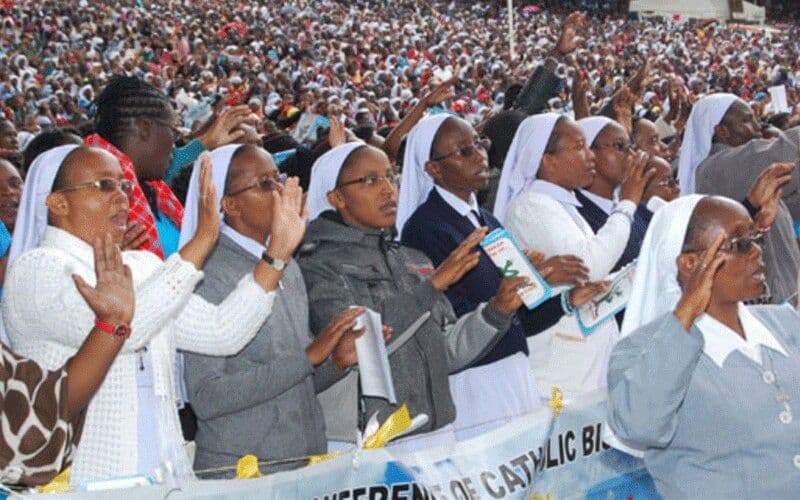We're loading the full news article for you. This includes the article content, images, author information, and related articles.
A growing number of female pastors are questioning employment terms within Kenyan churches, sparking a debate on the intersection of constitutional rights and religious doctrine. Legal experts affirm that Kenya's supreme law guarantees equal treatment, even within faith-based organisations.

NAIROBI, Kenya – A significant conversation is unfolding across Kenya as female members of the clergy begin to more openly challenge employment practices within their churches that they allege are discriminatory. This movement raises critical legal and social questions about the application of Kenya's progressive labour laws to religious institutions, which have traditionally operated under their own internal governance structures. The debate centres on the tension between the constitutional right to equality and the doctrinal autonomy of faith-based organisations.
At the heart of the matter is the Constitution of Kenya, 2010. Article 27 explicitly guarantees equality and freedom from discrimination for every person. It states that women and men have the right to equal treatment, including equal opportunities in political, economic, cultural, and social spheres. The article further prohibits direct or indirect discrimination on any grounds, including sex, religion, or marital status. This supreme law is reinforced by the Employment Act of 2007, which mandates equal opportunity in employment and prohibits discrimination in recruitment, training, promotion, and terms of employment. Section 5 of the Act specifically forbids discrimination on the basis of gender and requires employers to pay equal remuneration for work of equal value.
Despite this robust legal framework, anecdotal and documented reports suggest a disparity in how male and female clergy are treated. Issues range from unequal pay and benefits to being overlooked for promotions to permanent, pensionable positions. Some denominations that ordain women still exhibit significant gender disparities in leadership roles. For instance, a 2014 study on the Anglican Church of Kenya's Nairobi Diocese noted that while women can be ordained, their upward mobility in the church hierarchy was limited, with patriarchy and societal gender roles cited as major barriers.
The Kenyan judiciary is increasingly being called upon to interpret where the line between religious freedom and constitutional rights lies. The Employment and Labour Relations Court is the primary venue for such disputes. Legal precedent suggests that courts will uphold constitutional principles of non-discrimination, even when the employer is a religious entity. In one notable case highlighted on November 8, 2025, lawyer Vivian Mwende advised a female volunteer pastor that the law protects against gender discrimination even in voluntary roles that resemble employment. She referenced a ruling by Justice Jacqueline N. Kamau, who affirmed that church policies must align with the Constitution and national statutes.
A landmark High Court decision on July 17, 2024, declared a clause in the Pentecostal Assemblies of God (PAG) church's constitution that barred women from contesting executive positions as unconstitutional. The court found the provision to be discriminatory and a violation of the principles of equality guaranteed in the Kenyan Constitution, ordering the church to amend its constitution within 120 days. This ruling signals the judiciary's willingness to intervene to protect fundamental rights within religious organisations.
For female clergy who feel aggrieved, several avenues for redress are available. The first step often involves seeking internal resolution by formally writing to the church administration to request reasons for the adverse employment decision. Should this fail, legal action is the next step. Organisations such as the Federation of Women Lawyers (FIDA-Kenya) provide legal aid to women facing discrimination. A formal claim can be filed at the Employment and Labour Relations Court, which will examine the nature of the clergy member's duties to determine if an employment relationship existed, regardless of titles like "volunteer."
The National Gender and Equality Commission (NGEC) is another key state body mandated to promote gender equality and investigate discrimination claims. In August 2023, the NGEC made submissions to a Senate committee investigating the proliferation of religious organizations, highlighting the need for a regulatory framework that respects religious freedom while safeguarding human rights.
While some denominations, like the Kenya Evangelical Lutheran Church (KELC), have actively promoted gender justice and the ordination of women, challenges remain. The broader societal debate continues, with some church leaders citing scripture to reserve certain leadership roles for men, while others argue for a contextual interpretation that embraces equality. Ultimately, as Kenyan institutions evolve, the country's courts are reinforcing the principle that while freedom of religion is a protected right, it does not provide a blanket exemption from the constitutional imperative of gender equality.
Keep the conversation in one place—threads here stay linked to the story and in the forums.
Sign in to start a discussion
Start a conversation about this story and keep it linked here.
Other hot threads
E-sports and Gaming Community in Kenya
Active 9 months ago
The Role of Technology in Modern Agriculture (AgriTech)
Active 9 months ago
Popular Recreational Activities Across Counties
Active 9 months ago
Investing in Youth Sports Development Programs
Active 9 months ago